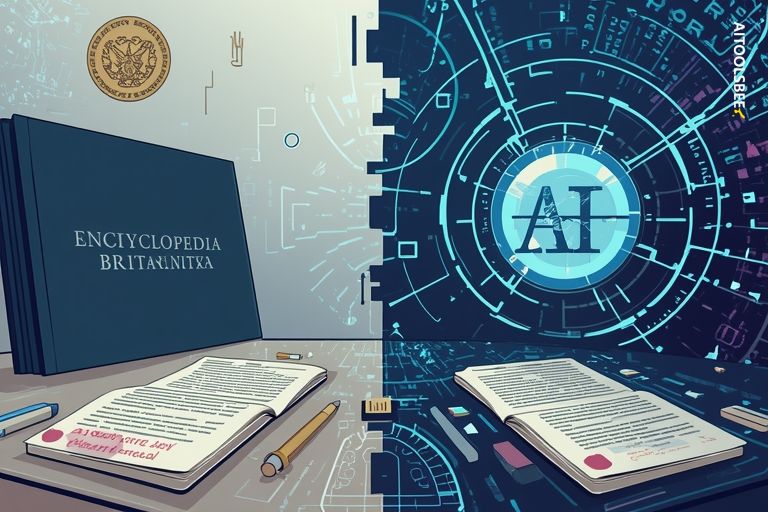
Encyclopedia Britannica and Merriam-Webster Sue Perplexity AI
Encyclopedia Britannica and Merriam-Webster have filed a lawsuit against Perplexity AI for copyright and trademark infringement, intensifying the legal conflict between media companies and the AI industry.
The lawsuit, filed on Wednesday in a New York federal court, accuses the 'answer engine' of extensive copyright and trademark violations.
Britannica claims that Perplexity not only copies its content without authorization but also harms its brand by attributing AI-generated inaccuracies to its name.
This legal action is part of a series of challenges from major publishers who argue that AI models threaten their existence by diverting web traffic and revenue.
The Britannica Group alleges that Perplexity engages in 'massive copying' of its protected content to create a substitute product and seeks unspecified damages and a court order to prevent further misuse.
Britannica Group CEO Jorge Cauz stated that Perplexity's product often reproduces their work, which is central to the copyright infringement claim.
The lawsuit also highlights the threat of AI hallucinations, where Perplexity's system generates false information and wrongly attributes it to their brands, damaging their reputation.
Perplexity is already facing multiple legal challenges from media organizations worldwide. In October 2024, News Corp filed a similar lawsuit.
The legal pressure is global, with Japanese media companies also suing Perplexity. The BBC has threatened legal action as well.
This wave of litigation represents a unified stance from publishers who believe their intellectual property is being devalued.
The conflict centers on Perplexity's 'answer engine' model, which scrapes websites and provides summaries, reducing the need for users to visit original sources.
This trend poses an 'existential threat' to the industry, as noted by News/Media Alliance CEO Danielle Coffey.
Perplexity's data gathering practices have been criticized, with accusations of using 'stealth crawlers' to bypass website blocks.
In response to criticism, Perplexity launched a revenue-sharing program, contrasting with competitors like OpenAI, which has secured expensive licensing deals.
The Britannica case adds to the broader legal debate over whether training AI on public web data constitutes 'fair use.' Perplexity faces immense pressure to legitimize its business model amid legal threats.

